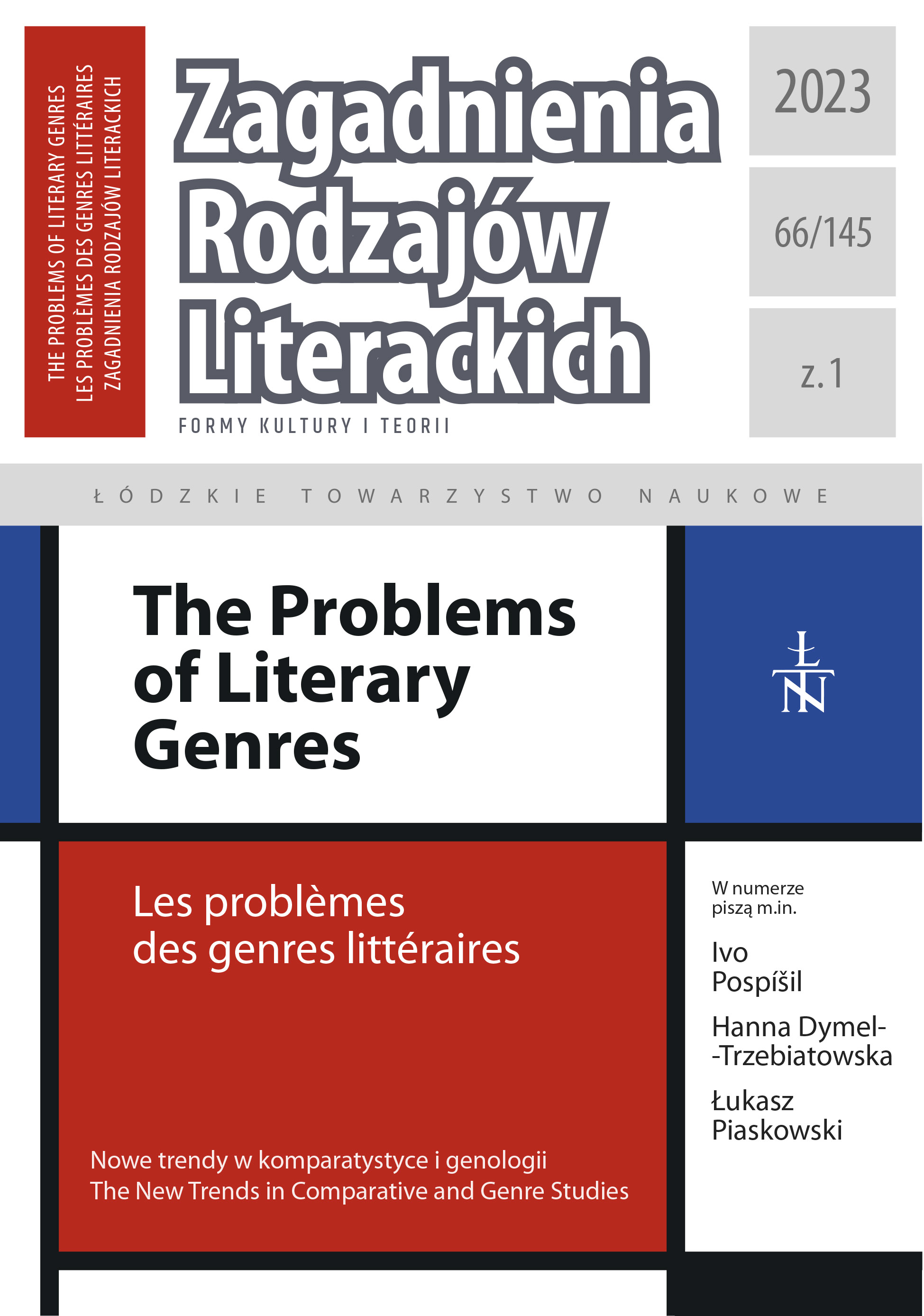The Filiation Narrative in the Contemporary French Novel: Jean Rouaud and the Quest for the Absent Master
DOI:
https://doi.org/10.26485/ZRL/2023/66.1/6Słowa kluczowe:
Jean Rouaud; absent father; filiation narrative; Invention of the author; metatextual dimension of the textAbstrakt
In this paper two of Rouaud's texts - L’Invention de l’auteur and La Désincarnation — are mainly being discussed. Our aim is to demonstrate that the story of filiation appears very symptomatic of a new historical situation at the beginning of the twenty-first century, which seems to be written without a “Master” both on the literary and spiritual levels. Thus, there arises the need to accommodate the “ideologies of the end” that appear at the moment when the author enters the literary scene. By trying to establish an impossible dialogue with the Absent, Rouaud voluntarily becomes the archivist of the end of a certain world. We focus on the ways of establishing the link between the search of a father and the observation of the absence of the Father and an attempt to fill in this absence by searchingother literary models.
Liczba pobrań
Bibliografia
Blanckeman Bruno, Dambre Marc, Mura-Brunel Aline, eds. (2004), Le Roman français au tournant du XXIe sičcle, Presses de la Sorbonne Nouvelle, Paris.
Blanckeman Bruno, Havercroft Barbara, eds. (2013), Narrations d’un nouveau sičcle. Romans et récits français (2001–2010), Presses de la Sorbonne Nouvelle, Paris.
Demanze Laurent (2008), Encres orphelines, José Corti, Paris.
Freyermuth Sylvie (2006), Jean Rouaud et le périple initiatique: une poétique de la fluidité, L’Harmattan, Paris.
Freyermuth Sylvie (2011), Jean Rouaud et l’écriture “les yeux clos”. De la mémoire engagée ŕ la mémoire incarnée, L’Harmattan, Paris.
Goga Yvonne, Jişa Simona (2008), Jean Rouaud. L’imaginaire narratif. Actes du colloque de Cluj-Napoca du 17 au 19 avril 2008, Casa Cărţii de Ştiinţă, Cluj-Napoca.
Herzfeld Claude (2007), Jean Rouaud et le “trésor des humbles”, L’Harmattan, Paris.
Jişa Simona (2007), La figure de l’artiste chez Jean Rouaud, Casa Cărţii de Ştiinţă, Cluj-Napoca.
Lantelme Michel (2009), Lire Jean Rouaud, Armand Colin, Paris.
Lebrun Jean-Claude (1996), Jean Rouaud, Editions du Rocher, Monaco.
Rouaud Jean (2001), La Désincarnation, Gallimard, Paris.
Rouaud Jean (2004), L’Invention de l’auteur, Gallimard, Paris.
Salgas Jean-Pierre (1997), Défense et illustration de la prose française [in:] M. Braudeau et al., Le roman français contemporain, ADPF, Paris.
Trévisan Carine (2002), La Grande Guerre dans le récit de filiation [in:] Sur les traces de Jean Norton Cru, eds. M. Frédéric, P. Lefevre, Musée Royal de l’Armée et l’Histoire militaire, Bruxelles.
Vetö Miklos (2016), La Métaphysique religieuse de Simone Weil, L’Harmattan, Paris.
Viart Dominique (1999), Filiations littéraires [in:] Ecritures contemporaines 2, Minard, Caen.
Viart Dominique (2005), Le récit de filiation [in:] D. Viart, B. Vercier, La Littérature française au présent: héritage, modernité, mutations, Bordas, Paris.
Viart Dominique (2011), Le récit de filiation: “Éthique de la restitution” contre “devoir de mémoire” dans la littérature contemporaine [in:] Héritage, filiation, transmission: Configurations littéraires (XVIIIe–XXe sičcles), Presses universitaires de Louvain, Louvain-la-Neuve, www.books.openedition.org/pucl/4197 [access: 23.05.2023].
Pobrania
Opublikowane
Jak cytować
Numer
Dział
Licencja
Prawa autorskie (c) 2023 Łódzkie Towarzystwo Naukowe i autorzy

Utwór dostępny jest na licencji Creative Commons Uznanie autorstwa – Użycie niekomercyjne – Bez utworów zależnych 4.0 Międzynarodowe.







